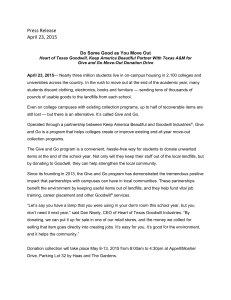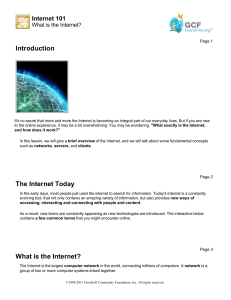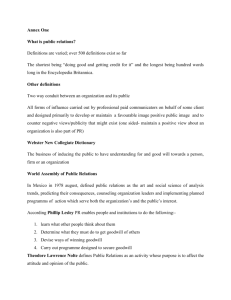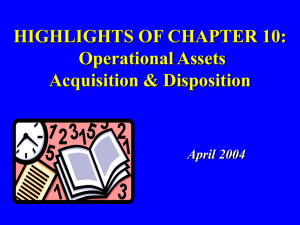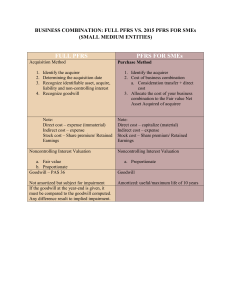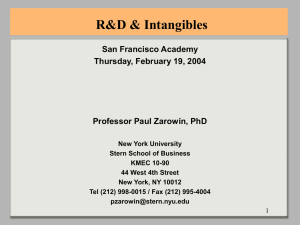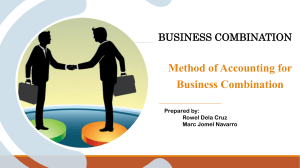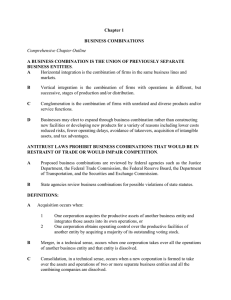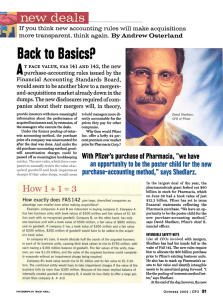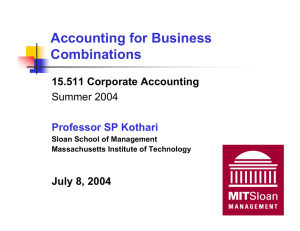Growth & Global Expansion Strategies for Service Firms
advertisement
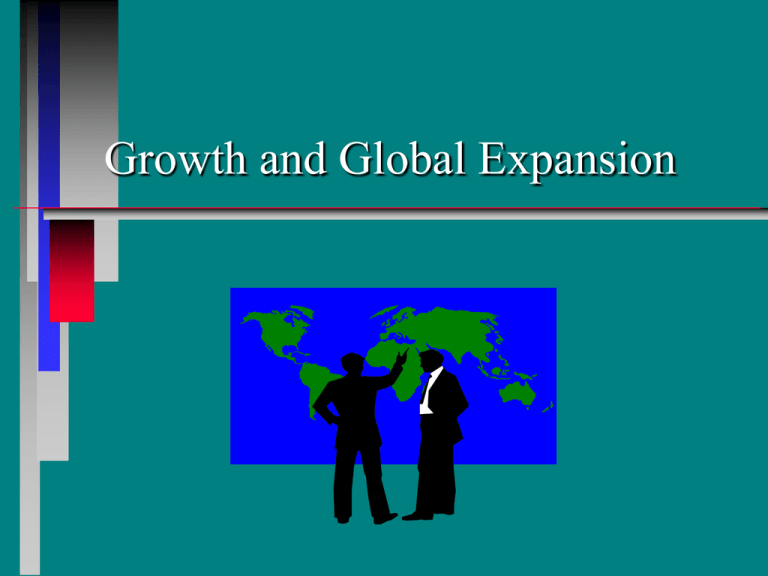
Growth and Global Expansion Learning Objectives Identify the expansion strategy that a service firm is using. Discuss the nature of franchising. Discuss the factors to be considered in multinational development. Describe and contrast global service strategies. Expansion Strategies Single Service Single Location Multisite Multiservice Focused service: * Dental practice * Retail Store * Family restaurant Clustered service: * Stanford University * Mayo Clinic * USAA Insurance Focused network: * Federal Express * McDonald’s * Red Roof Inns Diversified network: * Nations Bank * American Express * Accenture Franchising Benefits to the Franchisee Management Training Brand Name National Advertising Acquisition of Proven Business Economics of Scale Issues for the Franchisor Franchisee Autonomy Franchise Contract Conflict Resolution Generic International Strategies High Force Towards Global Integration Low Global Strategy No International Strategy Low Transnational Strategy Multi-domestic Strategy High Force Towards Local Responsiveness Multinational Development The Nature of the Borderless World (Triad) Customers - information has empowered Competitors - nothing stays proprietary Company - fixed costs require large markets Currency - become currency neutral Country - deprive competitor of home market Planning Transnational Operations Cultural Transferability Worker Norms Host Government Policy International Strategic Service Vision Service Delivery System Available technology? Infrastructure? Utility service? Operating Strategy Service Concept Appropriate managerial practice? Participative? Autocratic? What are customer expectations? Perception of value? Service ethic? Space availability? Labor market institutions? Government regulations? Unions? Service encounter? Language? Acceptance of self-serve? Interaction with suppliers? Host government policies? What are the usage patterns? Educating customers? Language? Front office? Back office? Labor market norms and customs? Cultural transferability? Target Market Segments What are the market segments? Domestic? Multinational? Tourist? What are important cultural differences? Language? Life style? Disposable income? What are the workforce demographics? Skills? Age distribution? Attitudes? Work ethic? Considerations in Selecting a Global Service Strategy Global Service Strategies Globalization Factors Multicountry Expansion Importing Customers Follow Your Customers Service Offshoring Beating the Clock Customer Contact Train local workers Develop foreign customers Customization Specialize in back- office office service components Quality and coordination Information Intensity Usually a standard service Usually routine Satellite network Develop foreign language & cultural sensitivity skills Strategic opportunity Strategic opportunity On site advantage Cultural Adaptation Modify service Accommodate foreign guests Labor Intensity Reduced labor costs Government restrictions Increased labor costs Logistics management Modify operations Move experienced managers Could be necessary to achieve scale Hire local personnel Inadequate infrastructure Provide extended hours of service More need for reliability & coordination Time compression Exploit opportunity Complexity Other Re-prototype locally Opportunity for focus Training investments Cultural understanding Reduced labor costs Home office employee morale Common language necessary Reduced labor costs Capital investments Topics for Discussion Recall that service operations can be classified as processing people, goods, or information. What challenges are faced in each category when globalization is undertaken? Chili’s, a U.S. – based restaurant chain that offers Mexican food, has its largest establishment in Monterrey, Mexico. Why is Chili’s so successful in Monterrey? What is the inherent conflict in a franchising arrangement? What explains the continuing trade surplus in services for the United States? Interactive Exercise Break the class into small groups with at least one international student in each group, if possible. Based on overseas travel, have the group report on features of day-to-day living that they have found different from home and worth emulating. Goodwill Industries International 1. 2. 3. 4. Who are Goodwill’s customers and how have their demographics changed over time? How should the introduction of for-profit thrifts affect Goodwill’s decisions about the role of customer service? How can Goodwill differentiate itself from the competition? Visit http://shopgoodwill.com/ where Goodwill auctions items of special interest and discuss why this on-line store has great profit potential. Goodwill Industries International Sources of Revenue Donated Goods 4%5% 5% 6% Temporary Services Subcontract Services 15% 65% Public Support Grants Miscellaneous FedEx: Tiger International Acquisition 1. 2. 3. 4. Describe the growth strategy of Federal Express. How has this strategy differed from those of its competitors? What risks are involved in the acquisition of Tiger International? In addition to the question of merging FedEx and Flying Tigers pilots, what other problems could be anticipated in accomplishing this merger? Suggest a plan of action that Fred Smith could have used to address the potential acquisition problems given in your answer to question 3.
